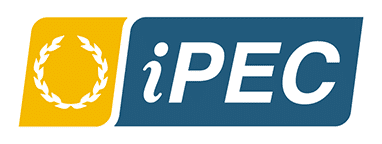Here’s the thing: You have something inside that’s calling you to a career in professional coaching, but there’s also that voice of practicality begging to know whether this is a legitimate, workable path for you at this point in your life.
As you continue asking yourself the difficult questions and mulling over the possibilities of a future in this field, you’re bound to come to grips with a very real and logical fear: Will I be able to land enough professional coaching clients to make a living, and what will that process even look like?
This is a common concern for prospective students as they investigate their education and training options because, let’s face it, none of that matters if you can’t actually find clients to coach. Having a positive impact on the world doesn’t just happen by chance, and unfortunately, good intentions don’t constitute a business plan. So it’s completely reasonable to wonder how you’ll use your new skills to make a living as a coach and build a better lifestyle for yourself.
It’s important to understand that learning to coach and learning to market yourself are two very different skill sets, but your interest in becoming a coach may be intertwined with your desire to work for yourself. So, ultimately, you’re not just training to become a coach; you’re also training to become an entrepreneur. And that can be pretty scary for someone without knowledge and experience in the business of working for yourself.
Don’t panic! There’s good news...
The process of attracting professional coaching clientele doesn’t have to be icky, inauthentic, or anxiety-ridden. It’s all about understanding that you’re the designer of your own future, and you have the power to make this journey uniquely yours— in ways that feel natural to you. This guide provides an inside look at the practical side of getting your future coaching practice off the ground, including valuable insights on how to prepare yourself for success.
Begin reading the full guide below, or fill out the form for a downloadable PDF version that you can reference later.
You may be racking your brain with issues like whether the coaching market is already oversaturated and whether you actually stand a chance. Yes, there’s a plethora of coaches out there for every category of personal and professional challenges, and it’s certainly true that pretty much anyone can say they’re a coach. But it’s also true that coaching is a growing industry with opportunity everywhere.
Every coach has a unique style that attracts a different audience, and those who invest in the right training and use sound business strategies can have unlimited success. To help you get a clearer picture of the professional landscape you’re heading toward, check out some of these encouraging numbers:


Clients often continue with coaching as long as they remain satisfied with their progress and enjoy the benefits of the relationship.
Coaching gives you the insight and tools to always see opportunity and find endless possibilities.
And you can be a successful coach EVEN if you don’t have a lot of friends or networks. Here’s why and how:
Life is not a one-size-fits-all experience. Embrace your uniqueness and use it to your advantage to be the coach you see in yourself.
There are tens of thousands of coach practitioners who can attest to their success in this field. To give you a more intimate look at how those before you have carved their own way, here is just a small sampling of stories from iPEC’s very own graduates:
For more data-driven information about the professional coaching industry, be sure to get a closer look at this article that reveals current statistics on global consumer awareness.
If it does, you’re not going about it the right way. One of the best things about becoming a professional coach is that this is a self-empowered and self-created journey. You can design any life you want because you’re the one in charge. There’s no template or one-size-fits-all approach, and while there’s opportunity for valuable support, the vision is all yours. That means you get to choose the techniques and processes that feel right for you, based on your goals, financial needs, and lifestyle.
There are no hard and fast rules for the kinds of services you can offer (or how you offer them). It’s more about identifying your strengths and desires when creating your “product mix” of one-on-one clients, group sessions, workshops, paid speaking gigs, contract coaching for organizations, or any other option that’s entirely unique to your brand. There are successful coaches out there with as few as two or three clients, while others work with hundreds of followers in their virtual communities. It all depends on how they structure their programs and how they choose to show up in the world.

The process of defining your own system and finding the kinds of clients you want to coach can be exciting.
Consider some of the interesting and unique ways that coaches have made a name for themselves and built a living, breathing process for attracting clients:
Marketing is one of the ways to share the incredible value you offer and connect with people who are looking for a coach just like you. There are lots of methods for managing this effort, and successful marketing can take on many different forms. You have the freedom to determine the path that works best for you.
To get you thinking about this in more tangible terms, here are some options to consider:
When looking for new clients, you can be highly vocal about asking for help in sharing your message. Tell people about your new venture in ways that feel authentic to you. Print business cards with contact information, and invite your biggest supporters to spread the word when they have an opportunity to do so.
When a potential client goes looking for you, you want them to easily find a professional coaching website that outlines your qualifications, experience, and offerings. Build one that highlights your unique set of coaching services, and create a blog that’s populated regularly with professional coaching-related posts. In addition, it can be powerful to create and continuously monitor your professional accounts on Facebook, Twitter, and LinkedIn to connect with your audience wherever they may be spending their time online.
The more people you know, the more people you can engage to get the word out. By joining professional organizations and attending events, you have the chance to meet new contacts who can help expand your reach. If you enjoy this type of approach, or are willing to learn how to be authentically strategic in this type of setting, you have the opportunity to connect with potential coaching clients and meet highly influential individuals who might recommend you as a professional coach.
Getting new professional coaching clients and contracts is all about exposure. Consider approaching relevant businesses with an offer to share a presentation or lecture, or volunteering to write posts anywhere you see the potential for someone to utilize your coaching expertise.
Ultimately, there are as many approaches and paths to growing a successful professional coaching career as there are coaches interested in building one. It’s up to you to create and own what works best for you.
Most importantly, don’t get hung up on the process. As a prospective or new coach, it can be easy to focus too much on “getting clients” or doing “the right things” to build a business. But this journey is yours, and yours alone. Find your own way of attracting clients and building your career. Supported by a strong foundation of coach training and tools, you can discover your own path to becoming a successful professional coach. Don’t forget to have fun with it!
1. You can make a plan, but don’t be surprised when a different reality begins to take shape around you. The plan is a guide, not a commandment. Let the journey take you to places you might never have imagined for yourself.
2. Asking for help does NOT make you weak. It’s about rooting yourself in community, tapping into your service-minded attitude, and making the most of the support you’re given.
3. Be willing to try and fail. By being vulnerable and trusting the process, you create your own success.
4. Every moment in life is a teaching or gaining opportunity. What might feel like a rejection or loss is actually an important stepping stone to something gained.
5. Use the coaching principles you learn to steer your interactions with others. When you learn how to show up in a different way, amazing things will start happening for you.
6. Strengthen your brand by aligning yourself with recognized names like the International Coaching Federation (ICF) or a highly reputable training institution. This will lend instant credibility to your services and give you a competitive advantage.
7. You don’t have to have it all together to build a successful, professional coaching career. It is your own life experience, personal “mess,” and willingness to connect with others that makes you an effective, valuable coach.
Once you’ve acquired the training and certification you need to develop your knowledge and skills as a professional coach, and to prepare yourself for landing new clients or contracts, your journey will take you through new experiences marked by new challenges. Are you open to embracing these realities head on?
Begin your own gut check by asking some simple questions and digging deep to find the answers.
The idea of making a leap into something new can be scary when you’re just beginning to feel things out, but if you can start with personally defined goals, it’ll bring the whole process into much clearer perspective. Because, unlike the reality in many traditional corporate roles, you can create just about any future you imagine. Your coaching career can be whatever you make of it. Instead of trying to reach some ominous, intangible objective (like “be a successful coach”), break it down into smaller parts. How about starting with a simple why?
Simon Sinek popularized the concept of owning your why when he published his book Start with Why. Your why is your north star. Being a professional coach is not just a job, but rather a way to live out your own vision.

You’re going to expend a great deal of time and resources as you work toward becoming a successful coach. To sustain the motivation needed to see these efforts through, you need to recognize and remember the real reasons you’re doing this in the first place. Your why doesn’t have to be complicated. It just has to be true.
And, honestly, the answer may change over time. Most coaches tweak their goals as they learn, but it’s important to start with something concrete. Sit with your reasoning for a while. See how it makes you feel. You have to be willing to get honest with yourself about what you want from a career in coaching so you can identify how to make it happen.
A coach is called to develop a trusting relationship with each client. You must be able to relate to them and help them discover their personal roadblocks. So it’s important to think about the types of people with whom you have the potential to make this connection (and enjoy the work).
Some coaches use their experience as a starting point, but you don’t have to feel tied down to that industry if you want to explore. Other coaches (like iPEC’s very own founder, Bruce D Schneider) have an awakening of hidden energy following a traumatic encounter. Still, others have hopped from niche to niche and find that one, in particular, seems to stick with them. The point is that there is a myriad of options to explore, and it’s up to you to decide the direction in which you want to go.

Close your eyes and picture your ideal client. Is it a young tech executive that wants to reach the next level in their organization? A couple looking for ways to overcome their challenges and heal their relationship? An individual struggling to adjust after an illness or reach specific health goals? The niche you choose to serve should be one that you feel compelled to support.
The most fulfilled professional coaches are the ones that have found the right type of clients for themselves by asking:
It’s not just about whom you wouldn’t mind spending an hour on the phone with. It’s more specifically about whom you can help transform. And you don’t need to have all the answers right now. In fact, your vision may change over time. But it’s important to put these considerations into perspective as you think about how you’ll build a coaching business and what avenues you might take to attract paying clients.
Are you planning for coaching to be a full-time gig or a part-time supplemental component to your career? Before you decide your answer, consider your typical week and how you want your work to fit around your life. Remember, “full time” can mean different things to different people depending on their goals, and you’ll want to answer this question for you. Here are a few examples:
Jeff loves forming deep relationships with his clients and prefers to schedule multiple one-on-one sessions a month with six or seven clients. His face-to-face time with them adds up to about nine hours a week, with another fifteen hours spent on the business side of his practice (bookkeeping, marketing himself, professional improvement, etc.). All told, Jeff works twenty-four hours a week on his business, with about nine hours being client-facing “paid” time.
Kim, on the other hand, loves to fill up her schedule with coaching in all forms. She’s on a mission to get in front of as many people as she can. She has six or seven private clients that get her undivided attention for around nine hours a week. She also sets aside one day a week for paid speaking gigs or internal coaching contracts at local businesses. She spends another eighteen hours a week running and marketing her business with time set aside for podcast appearances, blogging, and networking. Recently, she decided to offer group coaching in a mastermind setting on a weekly basis, where a dozen people gather together every week to discuss their current challenges and new opportunities. Kim essentially works thirty-five hours a week (nine hours for private clients, six hours for speaking and internal coaching gigs, two hours on her mastermind, eighteen hours running and marketing her business), with roughly half of it accounting for “paid” time. In this way, she is able to make the same amount she did at her corporate job (or more!) while working less than the traditional forty hours.
As you can see, both of these coaches devote a different amount of time to their coaching practice, and they’re each successful in their own way.
A career as a professional coach is not just another job. It will shape your days, shade your personal interactions, and impact your entire worldview. And yes, it can be extremely satisfying. But it can also be really hard.
Many in this field are surprised to learn just how much of their own transformation unfolds before they take the final steps toward a full-fledged career in professional coaching. Just as much as becoming a coach involves learning how to help clients transform, it also involves discovering yourself from a different point of view and undergoing your own mindset shift.
It takes a lot of honesty with oneself regarding not only the job-specific changes, but also the commitments involved. A career as a professional coach will demand certain sacrifices and changes in how you operate. You won’t be directed by a manager or have the benefit of collaboration with coworkers (unless you hire or partner with them yourself). You’ll be responsible for every aspect of your business and the course it follows. You’ll wear the hat of strategist, marketer, accountant, and every other role it takes to run a successful business. And before you even get to the business-building responsibilities, you’ll need to implement a plan to acquire training and certification as a professional coach.
Even so, this is a career and a lifestyle worth pursuing. Along the way, you’ll learn how to identify and leverage opportunities you never knew existed. You’ll tap into your own creativity and inner genius, honing your skills and developing a life-changing sense of awareness. You’ll meet interesting people and find fulfillment in the successes you help clients achieve. You’ll work to become the best version of yourself and support others in doing the same.

While being realistic about your finances isn’t the dreamiest part of this journey, it’s a necessary one. Managing expectations is key to starting the process on the right foot, with the best attitude.
Of course, you have bills to pay and a lifestyle to support, so thinking about your long-term financial plan is essential. The good news is that you can work a full-time job while completing your coach training coursework. And if you opt for the right institution, you’ll be fully equipped to start taking on clients before you finish the program.
While you’ll need to complete the entire coach training program to become certified, after Module I, you’ll have enough skills to start accepting paying coaching clients or to initiate positive, sustainable shifts in your current work environment.
By completing Mod I, members of HRCI and SHRM are also eligible to receive continuing educations credits to maintain these professional designations.
You can set your own coaching rates higher or lower than current averages based on the market you serve and your own values. You can also start at whichever rate feels best and tailor as you go.
Keep in mind that, ultimately, the level of ROI you have the potential to garner—and how quickly you can start earning—hinges on how you approach the process and what decisions you make regarding your learning and investment opportunities. Are you considering a training and certification program that supports your career goals with dynamic business tools, a strong coaching network, and expert guidance from a team dedicated to your success long after graduation?
Business development support is an important piece of any coaching certification curriculum. Your training should not only give you the tools to be a better coach for your clients, but also show you how to implement what you’ve learned in a way that will provide for your future.
For more information about the key factors to consider when evaluating any coach training program and its ROI, check out this highly informative guide.
Of course it makes sense to consider how a given career path will support you financially. But it’s also a good idea to step back and gain a clearer perspective on your specific concerns about money.
Humans are hardwired to run away from risky behavior, and “throwing away” a comfortable routine and a steady income for an unknown is usually a tough pill to swallow. Herein lies the real truth behind those money-related questions on many a prospective coach’s mind.
Our natural fear of change often creates limiting thoughts. Your brain may have told you that you can never equal or exceed where you are now, convincing yourself that the results you seek aren’t truly attainable. This can back you into a corner before you’ve even explored your surroundings.
Income and ROI, however, are just mathematical equations. What you really need to understand is that your potential is limited only by your fear. You are in control; you’re the leader of your own life. And you can have the kind of future you desire if you let go of the financial fears and barriers holding you back.
For Susannah Campora, an iPEC graduate, the business of getting paid to coach started with the desire to gain experience, even if that meant providing her services for free for a little while.
Susannah is a life coach as well as the CEO and co-founder of Connected, a community and program that empowers people to take action, collaborate, and thrive in what REALLY matters to them in life and work. Here’s what Susannah revealed about her experience with getting clients (and eventually getting paid) as a newbie coach:
“It was scary, actually, getting my first client. However, I took action anyway, and I was able to [do that] because in the [iPEC] program, I was so empowered and inspired by how I was being transformed that I knew I could do it. And I also felt really supported by everyone in this program … I had two leaders who were teaching my modules. I had groups of other coaches who were developing and learning together. And I also knew I could reach out to the staff any time.
So in that whole experience, I just went ahead and started practicing.
The first thing that I did was I offered the people I already knew (in my network) just 30-minute discovery calls to see what could be possible if they had outside eyes and … a safe place to explore some of their goals and to look at their mindset. So I started taking free 30-minute calls (sometimes they would turn into an hour) …
What I found is that with practice with real-life people, I could really just step into seeing myself as a coach and being professional … I did find some other tools … I pulled from the [iPEC] program, and I pulled from other things I found outside of the program, to just be able to know what questions to ask as they were thinking about coaching and to help inspire them to the possibilities of working with a coach.
Another thing that I did was I shared my own story.
I shared how coaching really impacted my life and how I was actually starting to see results. So it got easier and easier as I just shared myself. I stepped into it, and I asked them questions. And from all of that came a lot of wisdom that I could keep cultivating those skills and get better at even … the end of the conversation where you actually ask for the business. So, yeah, I just practiced, and I did everything I could to get to that point. And I started with the networks that I had.”
If you’re interested in learning more about others’ experiences with attracting paying clients, here’s some interesting feedback from our roundtable of professional coaches who’ve gone on to achieve their own individual visions of success. In this article, they’re sharing insider details about how they landed their first clients and what the process actually entailed.
A full-on career change can fire off a serenade of internal warning bells. Conventional wisdom says it takes time (and plenty of savings) to get the training and education required to jump the established career path in favor of starting a business. The truth is you can streamline that transition by choosing a program that teaches both the professional coaching skills you need to provide effective services and the business know-how to forge a thriving business.
In many widely recognized professions, there are opportunities to obtain certifications and credentials that reflect an individual’s education and expertise in that career field. These credentials reinforce the credibility and veritability of professionals to provide a service based on a set of specific standards. Although there are no governing regulations for the professional coaching industry, there IS a globally recognized organization dedicated to the coaching profession, which sets vigorous training and education criteria for coach practitioners worldwide. Prospective coaches can earn official credentials through the International Coach Federation (ICF).
Another globally recognized coaching standards organization, the European Mentoring Coaching Council (EMCC), also offers opportunities for earning professional coaching credentials. That’s in addition to the valuable professional certification available to those who enroll in an ICF-accredited coach training school. Mind you, there are over 200 coach training programs available just in the U.S., so choosing one with ICF accreditation is a distinct advantage.
When you enroll in iPEC’s ICF-accredited certified coach training program, you’re supported by these priceless business development resources:
When you start a new business, it’s important to have others with whom you can share your ups and downs, and to whom you can turn when you need advice. During the very first live module weekend, you’ll get to connect with a class of peers who are in a similar place in their coaching journey. You’re also invited to tap into iPEC’s virtual community of thousands of students and graduates who are happy to answer your questions and cheer you on along the way. Have a question on how to handle a particular client? Wondering what’s the best way to take notes during a coaching session? Running out of ideas for finding new clients? Just ask.
This coaching community is an open and generous one, and you’ll be able to lean into this group of people who have worked through similar challenges and opportunities and are willing to share their experience with you. With our blend of in-person and virtual experiences, iPEC students forge friendships and camaraderie with each other that lasts for years beyond graduation, giving coaches a leg up when it comes time to getting their business afloat.
Learning how to operate and market a business is an essential part of running any successful solo venture. And getting a solid foundation in business skills, strategies, and best practices will help put your mind at ease when it comes time to officially launch your coaching practice. At iPEC, you’ll learn business fundamentals like defining your ideal client, creating your unique branding and messaging, and marketing your services effectively. You’ll also get lifetime access to iPEC’s business resources like done-for-you templates for scripts, programs, contracts, worksheets, and more. This support is essential to getting your business up and running with minimal fuss (plus the added confidence that you’re doing it right.)
Templates are great for the technical and the how-to, but sometimes you need that extra one-on-one support. As a student in the iPEC program, you’ll receive three sessions with your own Success Coach (an iPEC graduate), who will help you gain clarity in your goals, coach you to take action, and guide you in turning your vision into reality. Think of it as a way to create a tangible roadmap to get you from where you are to where you want to be, so you can achieve your professional goals while feeling confident and in control.
The first step toward finding professional coaching clients is defining who is your ideal client is, which is a fundamental component of the iPEC program. During that process, you’ll also identify the places where they hang out and the different ways you can put yourself out there so they can discover you. Our graduates show up in different ways depending on their niche, personality, and style.
iPEC’s proprietary Energy Leadership™ Index (ELI) assessment puts a numerical value to the types of energy a person experiences and expresses. It can be given at the start of a coaching relationship and again after coaching a client for six months to a year as a follow-up to provide tangible, research-backed ROI data for any coaching engagement. The ability to report on how people are showing up in their day-to-day lives or under stress gives you a major boost in credibility and will set you apart from other coaches.
Based on the ELI, iPEC’s SCOPETM mobile assessment app enables you to see a profile of the energy you have available for use right now with respect to the specific task you’re rating. SCOPE shows you which factors are influencing your current energy state and gives you suggestions for how you can shift to more anabolic (powerful, constructive) energy. In other words, while the ELI measures overall energy, SCOPE allows you to measure your energy in any given moment.

You have a valuable gift, one that opens up a world of opportunities to grow personally and professionally, serve others, find freedom in your life, and honor your inner purpose. If you’ve finally recognized that coaching is the path to get you there, the best thing you can do is respect that truth and begin your journey forward.
There’s no need to obsess over the hows and whens of client acquisition if you focus on what’s really important: choosing an institution that supports your professional coaching aspirations in a holistic way. Setting yourself up for success means considering all the training options before you and selecting the one that resonates with your individual needs and caters to your long-term goals. Empower yourself to create the life you want.Connect with an expert to start a productive conversation about your interest in coaching and your potential for success.


